COcyber AI Cybersecurity Deephack: innovation, inclusion, and intensity in a dual-use cyber arena
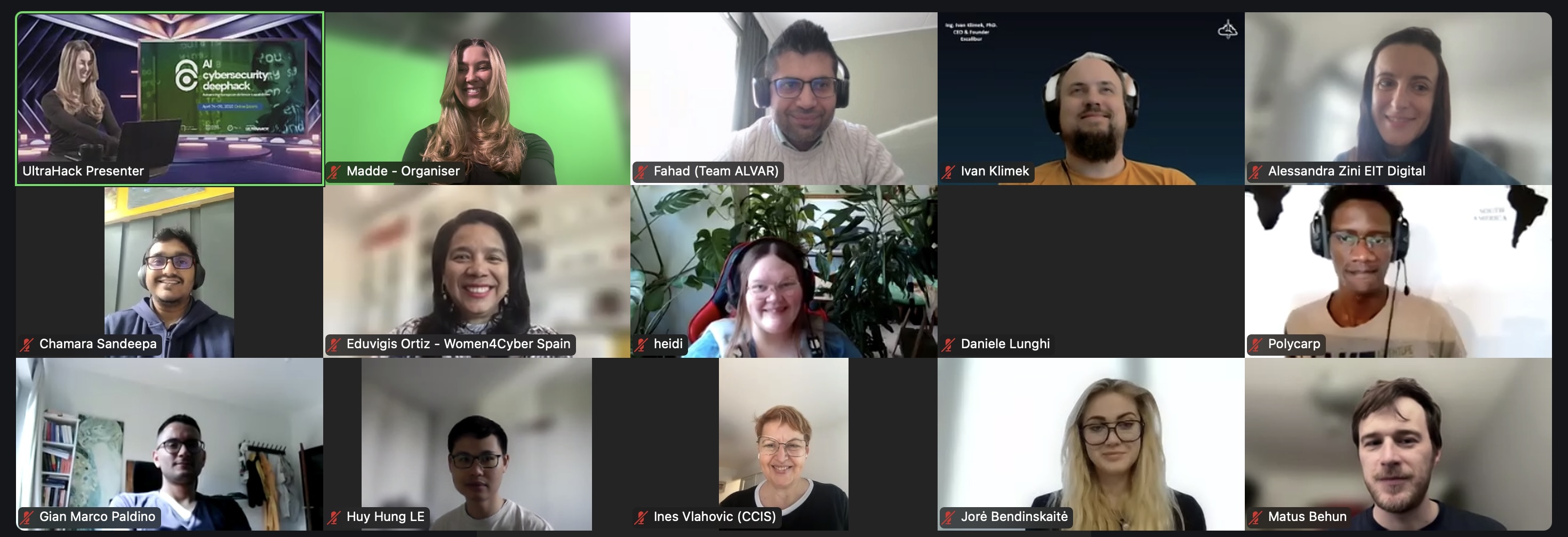
AI Cybersecurity Deephack: Advancing European Defence Capabilities
From April 24–26, 2025, the virtual stage was set for one of the most pressing challenges in cybersecurity today: can artificial intelligence help stop the next big phishing attack? The AI Cybersecurity Deephack: Advancing European Defence Capabilities brought together a diverse mix of participants - students, PhD candidates, startup founders, and skilled cyber professionals - for a 48-hour sprint to answer exactly that.
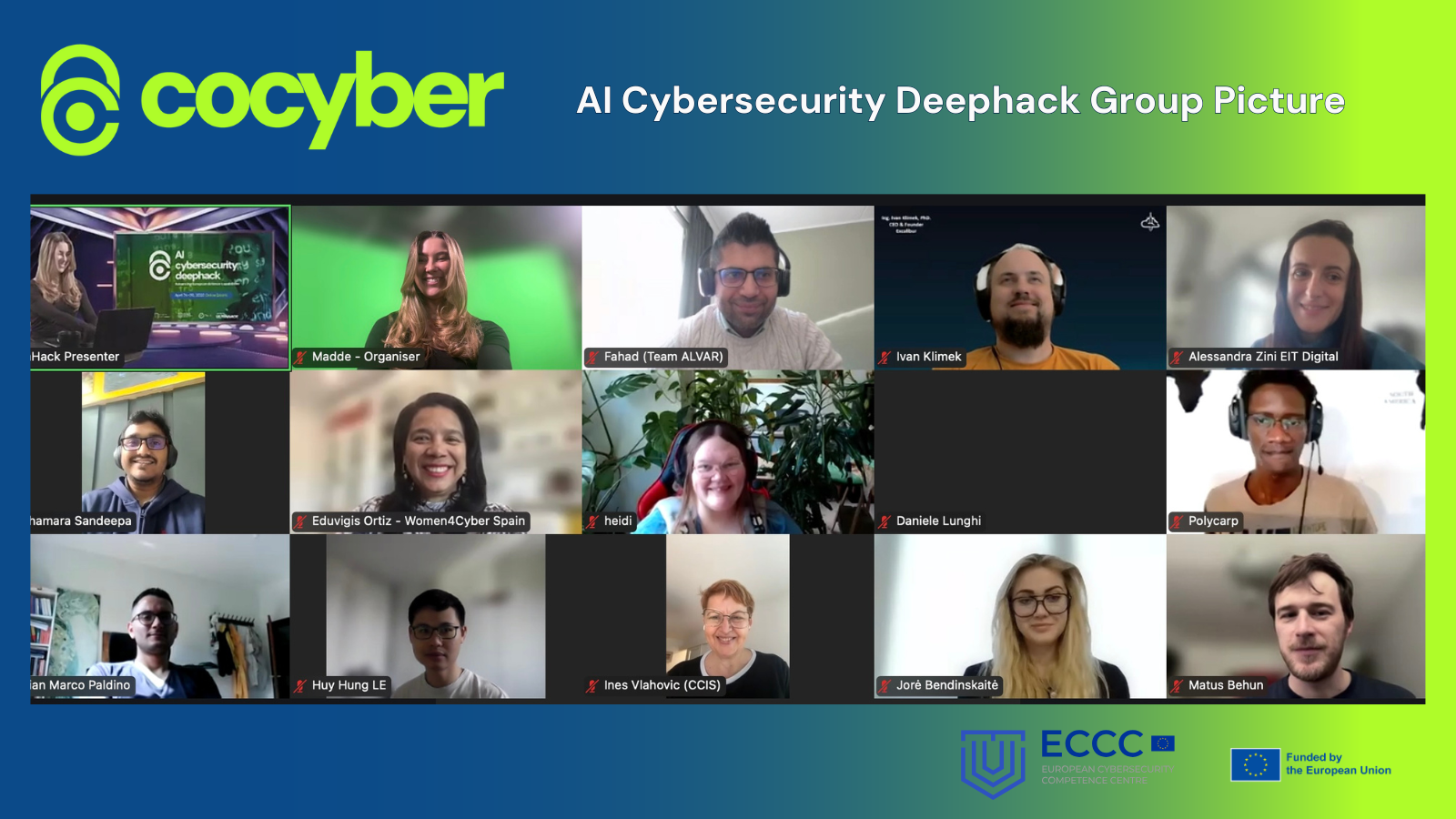
The challenge asked participants to design AI-powered systems capable of detecting and preventing phishing attacks in real time, with a focus on dual-use applicability across civilian and defence contexts. Solutions could combine, among others, threat intelligence, anomaly detection, natural language processing, and behavioural analysis, while addressing practical deployment issues such as multilingual attacks, AI bias, infrastructure constraints, and adversarial threats.
The event followed a focused programme that guided teams through checkpoints, mentoring, and final pitching activities. The Deephack kicked off on Thursday, May 24th, in the afternoon with the opening session, followed by an initial checkpoint and the start of online mentoring. Friday was structured around a morning checkpoint, pitching training, informal mentor coffee sessions, and a final check-in later in the day. On Saturday, teams submitted their pitches in the morning and participated in live presentations and Q&A sessions with the jury, followed by deliberation and the award ceremony.
The Winning Teams
1st Place: Team ALVAR
A real-time anomaly detection solution using multimodal AI to secure autonomous systems. Their tool is capable of operating across sensitive infrastructures - from defence drones to civilian smart logistics. Its robust threat verification logic prevents both zero-day attacks and stealthy phishing techniques. ALVAR combines signal analysis and behaviour monitoring to preemptively detect anomalies that indicate phishing or deeper systemic threats. The team was partially matchmade by the organisers and included the only woman among all team members, which, alongside their strong technical execution, was a key factor in the final decision.
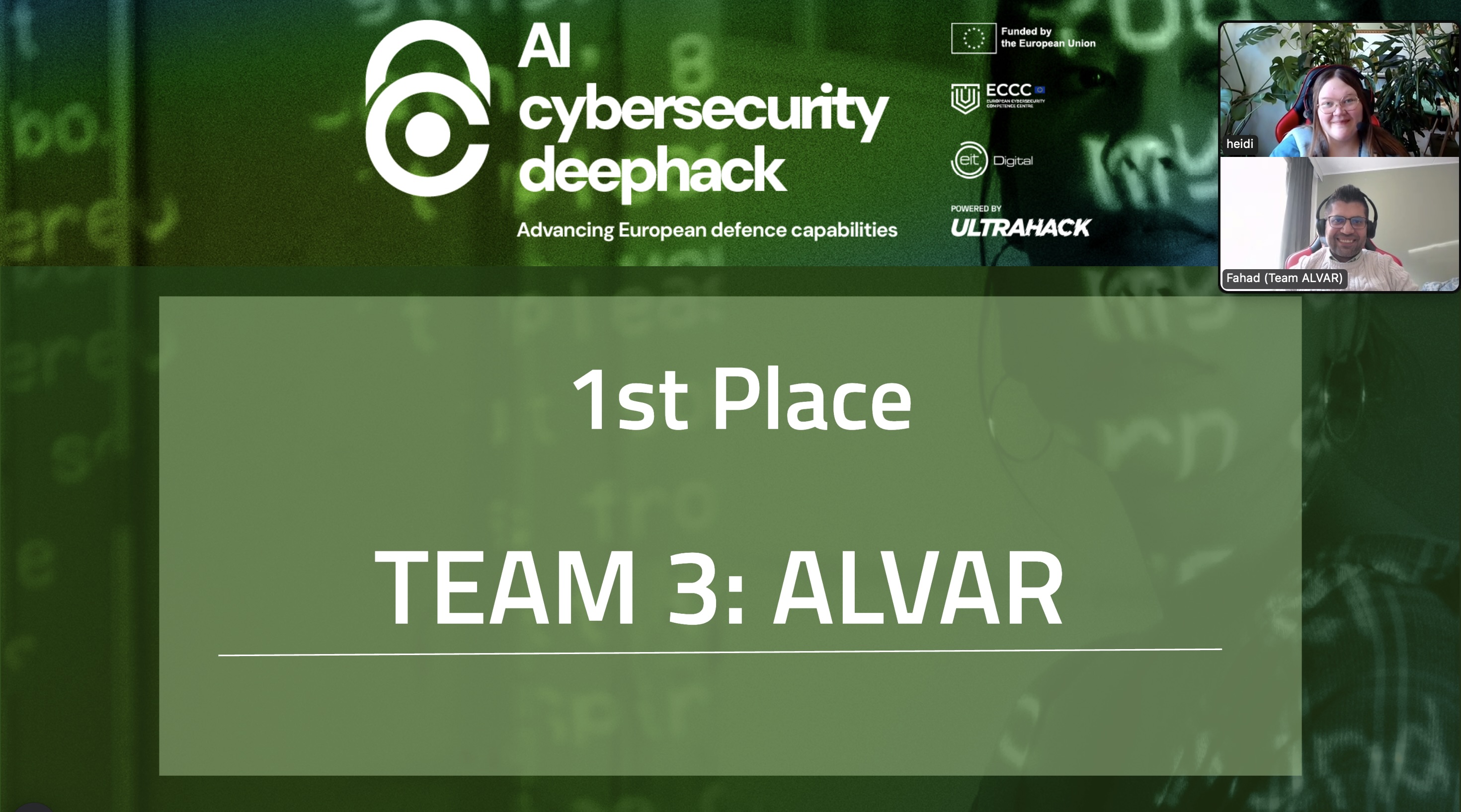
2nd Place: Team Morpheous
"Morph" uses federated learning to preserve data privacy while improving phishing detection. With built-in adversarial resistance and dual compatibility (cloud and air-gapped networks), Morph is a robust and flexible answer to AI-generated phishing threats. Their system adapts to subtle semantic changes in phishing emails and classifies attack intent, offering organisations real-time, actionable threat intelligence. Their architecture was praised for working seamlessly across sectors while avoiding the common privacy vs. security trade-off.
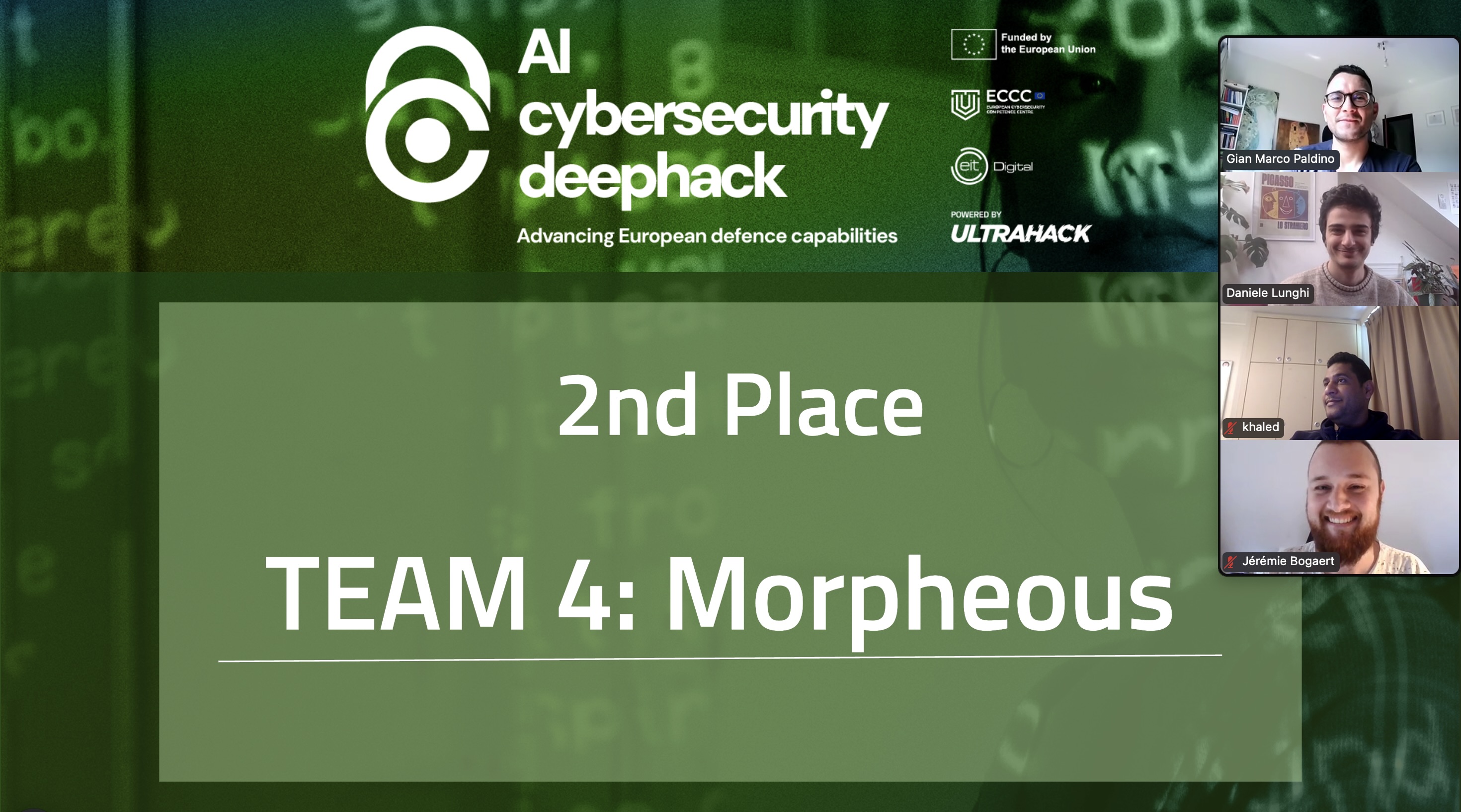
3rd Place: Team Genshield AI
FishNet challenges conventional filters by introducing graph neural networks and LLMs into phishing detection. The team argued that phishing is not just a technical issue but a human-centric one, and proposed both a detection engine and a phishing awareness trainer. Their system identifies linguistic and behavioural anomalies and even simulates phishing campaigns to raise user awareness. Combining AI with education, their dual-use model was both clever and realistic for implementation in organisations.
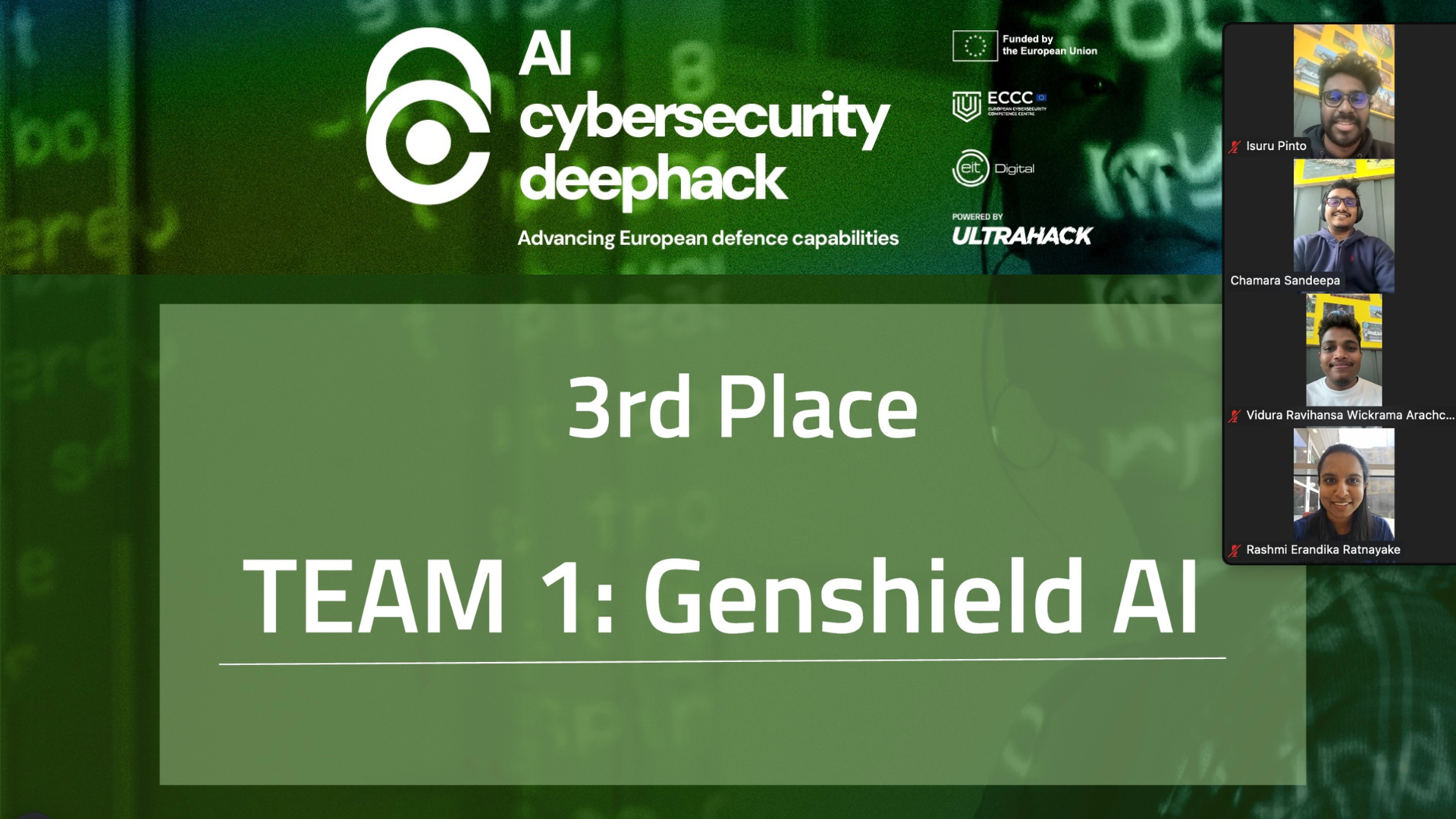
Although not in the top three, Team Vitro presented a standout solution based on browser isolation and multi-stage AI filtering. Their technology creates a secure barrier between the user and the web, analysing activity in real time and escalating threats through layers of reasoning and fallback systems. Using language-agnostic models and redundant deep research, their solution was praised for universality and speed, capable of handling messaging, email, and browsing within one consistent security layer.
Behind the Screens: What Made the Deephack Special?
The challenge was taken on by four teams, each consisting of three to five participants. While most teams registered together in advance, one was completed through matchmaking by the organisers to balance skills.
Teams brought different knowledge and experiences, shaped by their academic, professional, and regional backgrounds (with participants from Italy, Ireland, Belgium, and Bulgaria). All of them worked intensely under tight deadlines, leveraging mentoring sessions and peer input to refine their concepts. The mix of perspectives and the pressure of time created a dynamic environment where ideas evolved quickly and collaboration became essential.
This hackathon was a technical sprint and a demonstration of how interdisciplinary and cross-cultural teams can build resilient, ethical AI systems under pressure. In addition to the experience itself, the top teams received concrete support:
First place – access to the EIT Digital Speed Master course and incubation support
Second place – fast-track access to EIT Digital Acceleration programs
Third place – mentoring and consulting for market entry and funding opportunities
Top-ranked teams will also be featured in COcyber’s post-event communication campaigns for added visibility across the cybersecurity ecosystem.
Beyond the awards, we hope the deephack succeeded in its larger goal: strengthening Europe’s cybersecurity innovation capacity by connecting academia, startups, and industry in a joint challenge. It also sent a clear message that cybersecurity is everyone’s business, and AI is one of the most powerful tools we have to protect it.
A warm thank you to the entire COcyber team involved in this event: our project lead EIT Digital for the coordination, AUSTRALO for the marketing and promotion activities, all the project partners for their dissemination efforts, Ultrahack for the organization and hosting, as well as our mentors: Ines Vlahović, Shota Gvineria, Beatrice Olivari and our judges, Alessandra Zini, Eduvigis Ortiz Moronta, Jorè Bendinskaitė.
⚡ Don’t miss any future COcyber events connecting the dots between civilian and defence cyber security initiatives, join our community now at https://cocyber.eu/user/register

